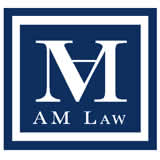As a small business owner, you’ve got a lot riding on you. You have to make sure that things keep running and that your business is profitable so that you can keep operating and growing. Your employees have put their confidence and trust in you to watch out for them. If your business needs to reduce its debt, you might be considering filing for bankruptcy.
But how would that affect your business?
Business owners can file for Chapter 7, Chapter 11, and Chapter 13 bankruptcy. Depending on how your business is structured, you might consider filing for one of these three options, which can impact your business in the following ways.
Chapter 7
Chapter 7 has a big impact on business. Known as the “liquidation bankruptcy,” Chapter 7 bankruptcy uses a business’s assets to settle its debts by selling them. Filing for this type of bankruptcy usually results in the business shutting down. Because of this, LLCs and corporations do not usually file for Chapter 7, though some exemptions, such as those that apply to “tools of the trade,” might make this type of bankruptcy appropriate for a sole proprietor.
Chapter 11
Unlike Chapter 7, Chapter 11 does not force a business to shut down. In fact, it allows businesses to continue operating even after filing. It works for both large and small businesses and allows them to reorganize their debt without liquidating any assets. However, Chapter 11 bankruptcies are usually more complex and take longer than other forms of bankruptcy.
Chapter 13
While Chapter 7 and Chapter 11 bankruptcies can be filed by businesses, only individuals can file for Chapter 13, which means you can’t file for this form of bankruptcy on behalf of your company or LLC. However, if you are personally responsible for some of your business’s debts, you could include these in a Chapter 13 bankruptcy filing. From the time of filing, creditors are prohibited from pursuing debtors with collection efforts.
How Bankruptcy Affects Credit
One of the things that people worry about when filing for bankruptcy is how it will affect their credit score. Not only can your personal credit score be affected, but your business’s credit could also take a hit, which could impact your business’s ability to access credit in the future.
How bankruptcy affects your personal or business credit score depends on how your business is classified. Sole proprietors are not legally separate from their businesses, so only their personal credit score will be affected. On the other hand, registered business entities like LLCs and corporations offer legal protection to the individuals who own and run them. When you file and you are protected in this way, your personal credit score won’t be affected. However, the bankruptcy will appear on your commercial credit report, which could affect your ability to get a loan in the future.
Need Help? Talk to a Small Business Bankruptcy Attorney
Talk to an attorney who cares. Get in touch with us today so that we can discuss your needs.
